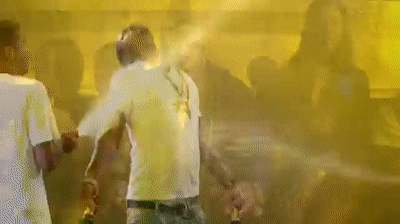- Dec 8, 1999
- 7,415
- 29,420
Scott Brooks right now:

Follow along with the video below to see how to install our site as a web app on your home screen.
Note: This feature may not be available in some browsers.
Solid all around game but he’s been way too passive...Being a rookie playing with Westbrook and Beal might do that to you thoWhat are initial impressions of Advija?
If the Wiz can get a top 3 pick, flip Westbrook for anything and get a solid return on Beal that’s all the W’s the team needs this seasonSo you guys want to reconvene after we actually win a game?
Some team is going to take Bartens from us. He is an actual quality shooter that can really help a good team.
Not with Ted Leonsis as the majority owner.Will the Wiz ever not be a poverty franchise?
The way he played tonight, they can have him.So you guys want to reconvene after we actually win a game?
Some team is going to take Bartens from us. He is an actual quality shooter that can really help a good team.



Aw shucks!!!
2 game winning streak...
2-5


If we go by Leonsis' track record, the odds are that he'll let Brooks finish out his contract.Hawks fired Pierce. What are the chances the Wizards let Brooks go any time soon?
Certainly they're on a good stretch right now so I can't see it happening unless they have a string of losses equally as bad as these were good.
As a whole, the NBA's thirty teams raked in $5.9 billion in revenue last season. This summer, the Houston Rockets sold for a record $2.2 billion. Yet somehow, despite revenue sharing, nine teams still claimed to take losses last year. The Wizards, of course, were one of them.
The competition between the lines is surrounded by a competition outside of them. For the sake of fairness, the NBA helps losing teams compete in future seasons through its draft system and salary cap. Through revenue sharing and monopolistic regional exclusivity, the league also helps bad organizations compete in spite of themselves.
If a player can't hack it on the court, they're left to ply their trade overseas. If an organization can't compete, they're propped up by the league itself. As hometown fans, we're stuck with them, as we are regional cable companies.
Can it really be considered a competitive failure for bad organizations to consistently fail - or is the league's true failing that all thirty franchises are insulated from their own failures?
Would making the business of basketball "idiot proof" truly result in better competitive balance?
What is a greater anathema to competition: for the best teams to receive the best talent via free agency, often at reduced cost, and thus perpetuate dynastic success, or for the worst organizations to be indemnified from their ineptitude, like AIG, Equifax, or Bank of America? Competition is a sham in a society where the likes of Eric Trump inherit, rather than earn, wealth and power.
The NBA has attempted to create a bubble of fairness in an unfair world, a gyroscopically stabilized level playing field. While the league can limit the salaries of its brightest stars, it cannot govern their earnings outside of basketball. Similarly, while the league can ensure that no other viable professional franchise can compete with the Wizards regional monopoly, fans in 193 countries have no geographic rooting interest. Why should fans in Cleveland cheer for the Washington Generals when they face the Harlem Globetrotters? Why should fans in Shanghai cheer for the Washington Wizards when they play the Golden State Warriors?
The concentration of capital has become a perverse form of fiscal entropy. The league has found no meaningful way to counteract the cumulative competitive advantages conferred by wealth, and attempts to ensure the success of organizations despite the incompetence of their respective owners run contrary to the principles of competition.
The Wizards are, in essence, being priced out of a city helped gentrify. When Leonsis first invested in the team, he did so as a tech darling of the time. Now one of the league's poorest billionaires, Ted's "Monumental Sports" empire and its streaming media efforts seem as quaint by contemporary standards as his predecessor, Abe Pollin's, "family business" model for the team was in the 80's and 90's.
But there is still hope for the least of us. A decade ago, the Warriors were roughly the Left Coast counterpart of the Wizards. Small market teams are increasingly able to amass a global following through sustained excellence. Lesser owners have been undoubtedly tempted by Donald Sterling's golden parachute, and Ted Leonsis, now crying poverty, could easily alleviate his alleged financial woes by flipping a franchise valued at $550 upon its purchase in 2010 for upwards of $1 billion today. To that end, Laurene Jobs purchased 20% of the team this summer. At this rate, all of the league's teams will soon be owned by one of four mega-corporations in a decade or so anyway. Is that a future worth rooting for?
In today's NBA, the rich get richer - and if you can't beat 'em, join 'em.